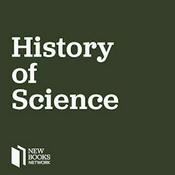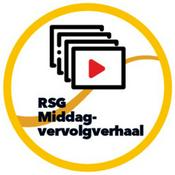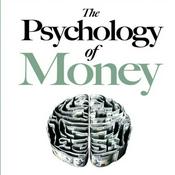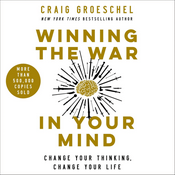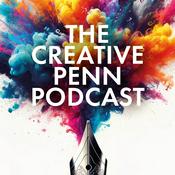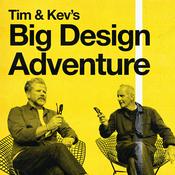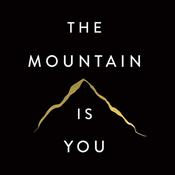819 episodes
David King Dunaway, "A Four-Eyed World: How Glasses Changed the Way We See" (Bloomsbury, 2026)
2026/2/19 | 39 mins.Eyeglasses have become so commonplace we hardly think about them—unless we can’t find them. Yet glasses have been controversial throughout history. Roger Bacon pioneered using lenses to see and then spent a decade in a medieval prison for advocating that he could fix" God’s creations by improving our eyesight. Even today, people take off their glasses before having their picture taken, despite how necessary they are.
A Four-Eyed World: How Glasses Changed the Way We See (Bloomsbury, 2026) is the first book to investigate the experience of wearing glasses and contacts and their role in culture. Dr. David King Dunaway encourages readers to take a look at how they literally see the world through what they wear. He explores everything from the history of deficient eyesight and how glasses are made to portrayals of those who wear glasses in media, the stigma surrounding them, and the future of augmented and virtual reality glasses, highlighting how glasses have shaped, and continue to shape, who we are. Interwoven is Dr. Dunaway’s own experience of spending a week without his glasses, which he has used since childhood, to see the world around him and his newfound appreciation for his visual aids.
This is the story of how we see the world and how our ability to see things has evolved, ultimately asking: How have two cloudy, quarter-sized discs of crystal or glass originally riveted together become so essential to human existence? Shakespeare famously said eyes are windows to the soul, but what about people who see only by covering theirs with glasses? Readers will find out together through this fascinating and insightful cultural history of one of humanity’s greatest inventions.
This interview was conducted by Dr. Miranda Melcher whose book focuses on post-conflict military integration, understanding treaty negotiation and implementation in civil war contexts, with qualitative analysis of the Angolan and Mozambican civil wars. You can find Miranda’s interviews on New Books with Miranda Melcher, wherever you get your podcasts.
Learn more about your ad choices. Visit megaphone.fm/adchoicesW. Patrick McCray, "README: A Bookish History of Computing from Electronic Brains to Everything Machines" (MIT Press, 2025)
2026/2/19 | 48 mins.In README: A Bookish History of Computing from Electronic Brains to Everything Machines (MIT Press, 2025), historian Dr. Patrick McCray argues that in order for computers to become ubiquitous, people first had to become interested in them, learn about them, and take the machines seriously. A powerful catalyst for this transformation was, ironically, one of the oldest information technologies we have: books. The author uses a carefully chosen selection of books, some iconic and others obscure, to describe this technological revolution as it unfolded in the half-century after 1945. The book begins with a fundamental question: How does a new technology become well known and widespread? Dr. McCray answers this by using books as a window into significant moments in the history of computing, publishing, and American culture.README offers a literary history of computers and, more broadly, information technologies between World War II and the dot-com crash of the early 21st century. From the electronic brains and cybernetics craze of the 1940s to the birth of AI, the rise of the personal computer, and the internet-driven financial frenzy of the 1990s, books have proven a durable and essential way for people to learn how to use and think about computers. By offering a readable half-century of bookish history, README explains how computers became popular and pervasive.
This interview was conducted by Dr. Miranda Melcher whose book focuses on post-conflict military integration, understanding treaty negotiation and implementation in civil war contexts, with qualitative analysis of the Angolan and Mozambican civil wars. You can find Miranda’s interviews on New Books with Miranda Melcher, wherever you get your podcasts.
Learn more about your ad choices. Visit megaphone.fm/adchoicesHoward Alan Israel, "Nazi Anatomy Lessons: A Dissection of Evil" (Vallentine Mitchell, 2026)
2026/2/13 | 47 mins.What if the tools that shaped your life’s work were rooted in unimaginable evil?
In this haunting episode, Rabbi Marc Katz sits down with Dr. Howard Alan Israel to discuss Nazi Anatomy Lessons: A Dissection of Evil, a book born from a single, shattering moment in an operating room. For over twenty years, Dr. Israel had prepared for surgeries using the same anatomy atlas—methodically studying each illustration, planning for every variation, and building a career marked by innovation, research, and the training of future surgeons. Then a colleague changed everything with one sentence: the atlas had been created by Nazi doctors.
That revelation launched a thirty-year journey into the moral abyss—an investigation into who these anatomists were, who their “subjects” had been, and how healers became murderers. Dr. Israel began to confront terrifying questions: Was his career built, in part, on the suffering of victims? How could such knowledge remain hidden in plain sight for decades? And how does a profession devoted to healing become an instrument of genocide?
Together, Rabbi Katz and Dr. Israel explore not only the historical horror of Nazi medicine, but the urgent bioethical questions it raises today. As genocide remains a recurring human reality, this conversation asks what must change in our moral frameworks, institutions, and education to prevent the transformation of healers into agents of destruction—and how we might instead build a society committed to healing rather than harm.
Rabbi Marc Katz is the author of Yochanan's Gamble: Judaism's Pragmatic Approach to Life.
Learn more about your ad choices. Visit megaphone.fm/adchoicesAndrew Billing, "Animal Rhetoric and Natural Science in Eighteenth-century Liberal Political Writing" (Routledge, 2023)
2026/2/04 | 56 mins.Animal Rhetoric and Natural Science in Eighteenth-century Liberal Political Writing: Political Zoologies of the French Enlightenment (Routledge, 2024) shows how our tendency to read French Enlightenment political writing from a narrow disciplinary perspective has obscured the hybrid character of political philosophy, rhetoric, and natural science in the period. As Michèle Duchet and others have shown, French Enlightenment thinkers developed a philosophical anthropology to support new political norms and models. This book explores how five important eighteenth-century French political authors—Rousseau, Diderot, La Mettrie, Quesnay, and Rétif de La Bretonne—also constructed a "political zoology" in their philosophical and literary writings informed by animal references drawn from Enlightenment natural history, science, and physiology. Drawing on theoretical work by Derrida, Latour, de Fontenay, and others, it shows how these five authors signed on to the old rhetorical tradition of animal comparisons in political philosophy, which they renewed via the findings and speculations of contemporary science. Engaging with recent scholarship on Enlightenment political thought, it also explores the links between their political zoologies and their family resemblance as "liberal" political thinkers.
Learn more about your ad choices. Visit megaphone.fm/adchoices- Friction, the force that resists motion, is synonymous with difficulty and complication. If you’ve ever replaced tires worn smooth by the road or reached for a can of WD-40 to fix a creaking door hinge, then you know the headache this force can cause.
In Friction: a Biography (Harvard UP, 2026), Dr. Jennifer Vail reveals beneath the difficulty and complication a force as enigmatic and intriguing as it is central to the human story. She traces how, from the moment we first harnessed the power of fire to the Industrial Revolution and beyond, the quest to manipulate friction has driven innovation, culture, and even our own evolution. Today, as scientists study friction in the most unexpected of places, they’re learning why some viruses lie dormant for years while others devastate our cells immediately; where elusive dark matter might be found; and how the climate crisis ought finally be addressed. And yet, for all they’ve learned, scientists still haven’t cracked the greatest mystery of all: how to bridge the distinct laws that govern friction at its largest and smallest scales.
Connecting the discoveries of historical luminaries like Newton, da Vinci, and the Wright brothers to the latest breakthroughs in engineering, Friction is a captivating biography of this unsung hero of the physical world.
This interview was conducted by Dr. Miranda Melcher whose book focuses on post-conflict military integration, understanding treaty negotiation and implementation in civil war contexts, with qualitative analysis of the Angolan and Mozambican civil wars. You can find Miranda’s interviews on New Books with Miranda Melcher, wherever you get your podcasts.
Learn more about your ad choices. Visit megaphone.fm/adchoices
More Arts podcasts
Trending Arts podcasts
About New Books in the History of Science
This podcast is a channel on the New Books Network. The New Books Network is an academic audio library dedicated to public education. In each episode you will hear scholars discuss their recently published research with another expert in their field.
Discover our 150+ channels and browse our 28,000+ episodes on our website: newbooksnetwork.com
Subscribe to our free weekly Substack newsletter to get informative, engaging content straight to your inbox: https://newbooksnetwork.substack.com/
Follow us on Instagram and Bluesky to learn about more our latest interviews: @newbooksnetwork
Podcast websiteListen to New Books in the History of Science, Die Storiekas and many other podcasts from around the world with the radio.net app
Get the free radio.net app
- Stations and podcasts to bookmark
- Stream via Wi-Fi or Bluetooth
- Supports Carplay & Android Auto
- Many other app features
Get the free radio.net app
- Stations and podcasts to bookmark
- Stream via Wi-Fi or Bluetooth
- Supports Carplay & Android Auto
- Many other app features

New Books in the History of Science
Scan code,
download the app,
start listening.
download the app,
start listening.
